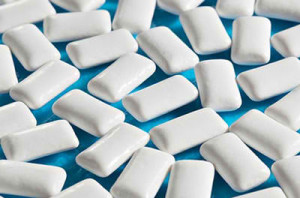One of the lifetime obligations as a person is to secure dental health. This keeps both teeth and body free from health-related issues, like oral problems. Obviously, neglecting oral health allows dental problems to breed. This exposes your teeth from tooth decay and oral cavities. Sadly, not all of us are devoted enough to practice regular dental hygiene, like dental flossing and brushing. Instead, they continue engaging to bad oral habits, like eating sugary foods!
Thankfully, there are non-sugar chewing gums you can rely on. Most dental office reviews said these products are the best solution to fight dental problems. The chewing gums are proven to reduce levels of cavities and tooth decay. Unlike the conventional gums, sugar-free gums prevent bacteria to flourish while keeping saliva production in great flow.
Chewing sugary gum is a popular habit that generates dental problems. This product item comes with an array of flavors, including mint, bubblegum, fruit, cinnamon and the likes. Despite the sweetness of this product, dentists cannot deny the adverse effects it can inflict to the dental health. For this reason, experts developed sugar-free gums.
In the past years, humans are unearthed to have long desire on chewing habits. This common practice started way back in 3000 BC where individuals are recognized to chew lumps of birch bark tar. The chewing habit became more popular when John B. Curtis introduced the very first chewing gums. This gum is called as The State of Maine Pure Spruce Gum. This gum is considered as the first commercialized chewing gums which men and women wholeheartedly embraced.
The spruce gum started in 1850s – pretty close to the phenomenal introduction of natural chewing gums in 1860s. These chewing gums are originated in Mexico. It is made from evergreen tree which is also accepted by thousands of individuals. The natural gum is called chicle. It is chewable and free from toxic which is extremely perfect as candy.
Individuals who are fond of chewing gums should consider non-sugar items. These types of gums eliminate dental problems, like bad breath. Sugar-free gums also help smokers quit cigarette smoking. In fact, this can be treated as a diet acid. Other than the mentioned perks, non-sugar chewing gums also boost dental health. Dental professionals proved that this product item can reduce and eliminate the potential risks of tooth decay and cavities. Aside from that, this increases saliva production.
Great flow of saliva production is essential to the digestion process. With an increased production of saliva, you can lower the food and sugar traces on teeth.
Nevertheless, keep in mind that all these dental perks only exist on sugar-free gums. Fact remains that aside chewing sugar-free gums, oral hygiene is the best mean to boost dental health. This involves regular brushing and flossing of teeth. These two basic methods help reduce the odds of dental problems. Of course, don’t forget to visit your dentist regularly. An average individual is required to visit his dentist twice a year.
To learn more, seek professional help. They can help you what gums to settle with along with other dental care tips.
